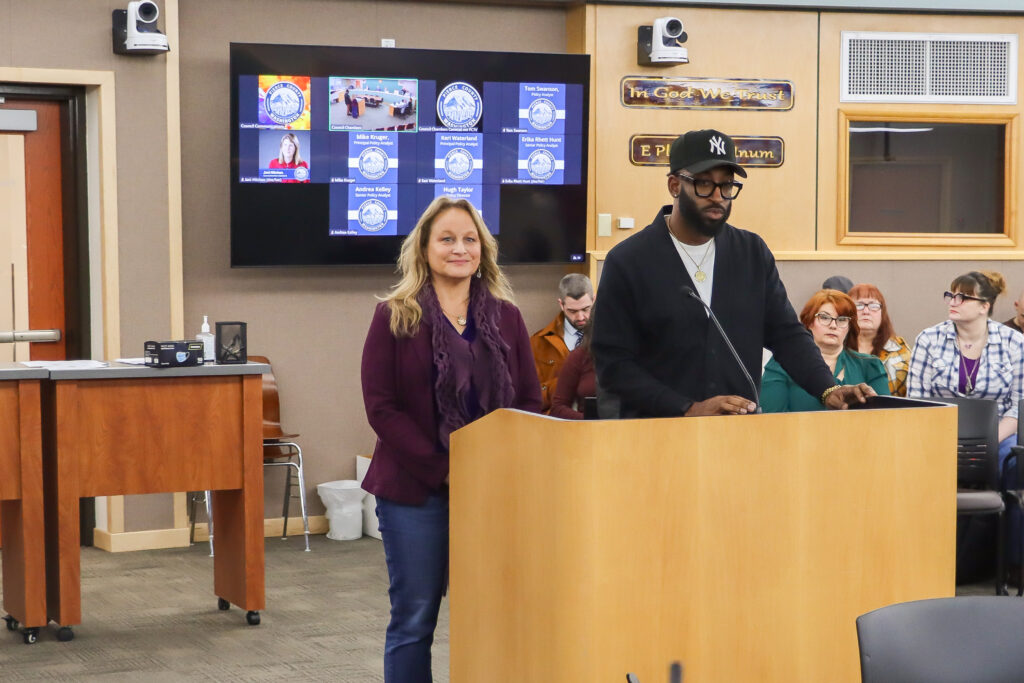Exercising Democracy, Together
By Bryan Dominique, Communications Manager
Office of the Pierce County Council
Behind every decision made by the Pierce County Council lies a deliberate process. It starts long before a final vote is cast.
From scheduling legislation on the Consent Agenda to in-depth discussions in committee meetings, much of the Council’s most important work happens through dialogue and collaboration in an open and public process.
It might be hard to notice at first because Council meetings follow a familiar script – a pledge of allegiance, a moment of silence, a land acknowledgement, approving minutes, acting on the consent agenda and other legislation, and there’s usually a proclamation or two. It’s the Consent Agenda, where items are scheduled, so most of it isn’t final action; it’s just scheduling and forwarding legislation to committees.

Most of the time, the Consent Agenda is approved as is, and the legislation is scheduled and assigned to a committee for in-depth analysis, deliberation, public hearings, amendments, and a recommendation to the Council on what action to take. The Council has six standing committees that do this work:
Rules & Operations Committee: sets meeting agendas, assigns legislation to the appropriate committees, and reviews items such as budget supplementals, contracts, elections and voting matters, ethics and performance audits, and intergovernmental agreements.
Community Development & Environment Committee: reviews policies related to building, land use and development, as well as environmental protection, growth management, and shoreline planning. It also looks at park planning, school and park impact fees, and updates to construction and fire codes. It also oversees budget priorities connected to community development and the environment.
Economic & Infrastructure Development Committee: reviews issues related to roads, transportation, utilities, and public works, as well as solid waste, surface water, and sewer systems. It also examines economic development initiatives, telecommunications, and franchises, and oversees related budget goals and projects.
Health & Human Services Committee: reviews programs and policies related to behavioral health, homelessness, community and prevention services, and support for children, youth, and seniors. It also oversees budget priorities connected to human services.
Public Safety Committee: reviews policies and programs related to law enforcement, courts, corrections, and emergency services, as well as public health and safety issues, including firearms standards, nuisance concerns, and animal services. It also oversees agencies like the Sheriff’s Department, Assigned Counsel, and South Sound 911.
Committee of the Whole: This committee brings together all seven members of the Pierce County Council to discuss major countywide issues. It is often convened to review the county’s biennial budget development and other budget-related issues, such as supplemental budget proposals. All actions by the committee are advisory only; final council action happens at a regular or special Council meeting.
After the committee makes a recommendation (or chooses not to), it is sent to the full Council, where the legislative body will hold a public hearing, consider any additional amendments, and vote on the proposal. In some instances, legislation is continued to a future Council meeting to provide more time for information gathering, amendment, and dialogue.
The Community’s Role
The efforts you invest in analyzing staff reports, presentations, amendments, and the testimony you share as a result of that work may not yield the outcome you want. Yet, without your public testimony, thoughtful questions, and collaborative exchanges with councilmembers in the community, the County Council would be making decisions absent that rich context that gives meaning to the very issues it seeks to address.
Engaging in this process affirms a shared commitment to representative self-governance, where ideas are strengthened through scrutiny and civic participation. In that sense, showing up and contributing thoughtfully is both an act of civic responsibility and a quiet expression of faith in our community’s capacity to evolve through collective effort.
The Council’s standing committees, then, serve as the spaces where complex local issues are examined, competing priorities reconciled, and collective values translated into action. Ultimately, every committee process begins at the County Council and concludes when it is sent back to the County Council.
Each agenda item, committee meeting, and public comment reflects the shared belief that governance is not a spectator sport. When you engage by asking questions, attending hearings, and lending your voice, you help ensure Pierce County continues to evolve through informed participation and collective purpose.